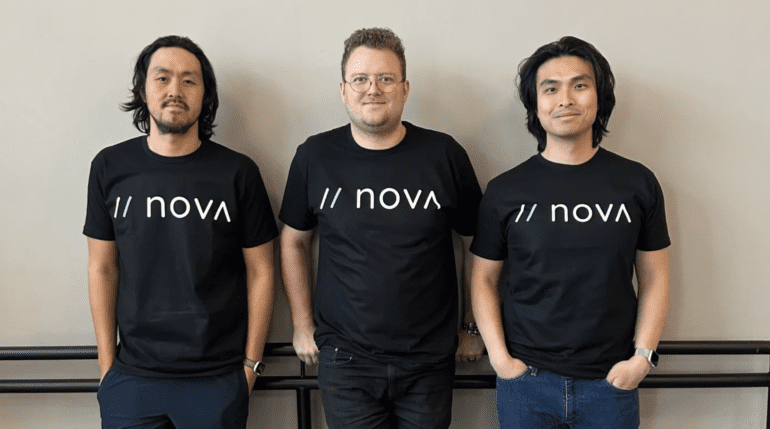- Nova AI challenges the conventional paradigm by advocating for separate code development and testing entities.
- A surge in generative AI startups, exemplified by Antithesis, CodiumAI, and QA Wolf, underscores the growing significance of code testing.
- Nova AI, a year-old startup, secures a $1 million pre-seed round, aiming to cater to mid-sized to large enterprises with intricate code bases.
- The company’s end-to-end testing solutions leverage AI to automate test generation and cater to CI/CD environments.
- Founded by ex-Googler Zach Smith and Meta alumnus Jeffrey Shih, Nova AI abstains from utilizing OpenAI’s GPT-4 due to enterprise skepticism regarding data privacy.
- Nova AI emphasizes open-source models like Llama and StarCoder, capitalizing on their cost-effectiveness and targeted performance.
- The market shift towards open-source AI models signals a strategic advantage for Nova AI, positioning them favorably amidst competition.
Main AI News:
It’s an irrefutable reality ingrained in human nature that those crafting code shouldn’t be the ones vetting it. Primarily, they tend to abhor such tasks. Moreover, akin to robust auditing procedures, validation should ideally be conducted by distinct entities from those engaged in the actual development process.
Predictably, the landscape of code testing, spanning various dimensions such as usability, language or task specificity, and end-to-end assessments, has become a focal point for a burgeoning cohort of generative AI ventures. Each week, the pages of TechCrunch are adorned with the profiles of such entities, exemplified by the likes of Antithesis (securing $47 million), CodiumAI (raising $11 million), and QA Wolf (garnering $20 million). Moreover, fresh contenders continually emerge, exemplified by recent Y Combinator alumnus, Momentic.
Among these, Nova AI, a fledgling enterprise merely a year old and an alumnus of the Unusual Academy accelerator, stands out, having secured a pre-seed funding round totaling $1 million. Distinguishing itself by challenging conventional Silicon Valley startup paradigms, founder/CEO Zach Smith reveals to TechCrunch that the company seeks to outshine competitors through its end-to-end testing solutions.
While the conventional approach for Y Combinator startups typically involves starting small, Nova AI has set its sights on mid-sized to large enterprises grappling with intricate code bases and pressing exigencies. Smith refrains from disclosing specific clientele employing or trialing their product, except to characterize them as predominantly late-stage (Series C or beyond) venture-backed startups in sectors like e-commerce, fintech, or consumer goods, with a penchant for “heavy user experiences,” where downtime exacts a significant toll.
Nova AI’s technological arsenal sifts through clients’ code repositories, automatically crafting tests utilizing GenAI. Tailored for continuous integration and continuous delivery/deployment (CI/CD) environments, where engineers continually push updates into production, Nova AI’s solution addresses a critical pain point.
The genesis of Nova AI stemmed from the firsthand experiences of Smith and co-founder Jeffrey Shih while toiling as engineers in tech behemoths. Smith, a former Googler, specialized in cloud-related endeavors involving extensive automation, whereas Shih’s tenure at Meta, Unity, and Microsoft honed his expertise in synthetic data, a rarefied domain within AI. With the addition of AI data scientist Henry Li as the third co-founder, Nova AI’s triumvirate possesses a formidable blend of expertise.
A notable departure in Nova AI’s modus operandi is its deliberate avoidance of leveraging OpenAI’s GPT-4, a departure from the trend observed among numerous AI startups. Smith elucidates that while OpenAI assures that customer data isn’t utilized for model training underpaid business plans, enterprise skepticism persists. Nova AI’s engagement with large enterprises underscores this sentiment, with Smith noting, “We don’t want our data going into OpenAI.”
This skepticism towards OpenAI isn’t confined to engineering teams within large corporations. OpenAI faces legal challenges from entities disconcerted by the potential utilization of their work for model training or suspecting unauthorized incorporation of their work into OpenAI’s outputs.
Nova AI pivots towards open-source models like Llama, developed by Meta, and StarCoder, originating from the BigCoder community, alongside proprietary model development. Although they haven’t integrated Google’s Gemma extensively, preliminary tests have yielded promising results.
Smith underscores the strategic advantage of open-source AI models, not only assuaging enterprise concerns but also proving cost-effective while delivering targeted performance. Nova AI’s emphasis lies in harnessing these models to fulfill specific tasks efficiently, epitomized by the streamlined task of writing tests.
Furthermore, the rapid evolution of open-source models, exemplified by Meta’s recent iteration of Llama, underscores their viability as alternatives to industry-leading models like GPT-4. Nova AI’s strategic alignment with these models positions them favorably in an increasingly competitive landscape, driven by innovation and efficacy.
Conclusion:
Nova AI’s disruptive approach to code testing not only challenges established norms but also capitalizes on emerging trends in AI and open-source development. By strategically aligning with open-source models and addressing enterprise concerns regarding data privacy, Nova AI stands poised to revolutionize the code testing landscape, offering efficient and cost-effective solutions to mid-sized to large enterprises. This shift underscores the market’s appetite for innovative approaches to software testing and signifies a growing trend towards leveraging open-source technologies in AI-driven solutions.

